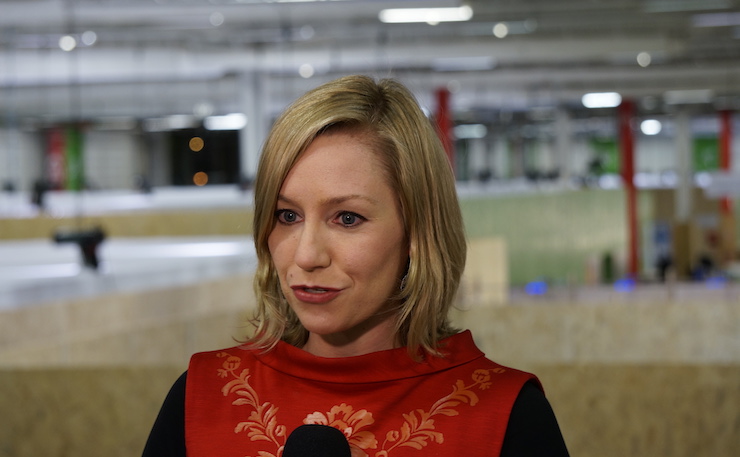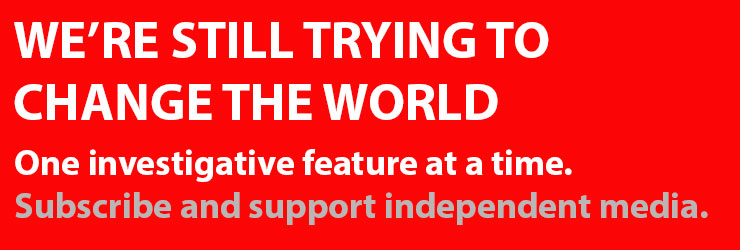The Federal Senate will investigate the financial risks posed by climate change, and how transparent companies are about their exposure to them, after a Greens motion established an inquiry earlier this week.
The terms of reference are an inquiry into “current carbon risk disclosure practices within corporate Australia,” and how government agencies manage and report their exposure to the financial risks associated with climate change.
The motion which established the Inquiry was moved by the Greens, supported by Labor and key independents, but opposed by the Coalition, who Senator Scott Ryan said “does not support additional red tape….”
Financial analysts, however, are increasingly sounding the alarm. In a speech to Lloyd’s of London last September, Bank of England boss Mark Carney flagged climate change’s “potentially profound implications for insurers, financial stability and the economy”.
On top of the risk of a market collapse and fossil fuel stocks ending up ‘stranded assets’, increasingly erratic and extreme weather and the impact this will have on physical infrastructure and insurance premiums are also very real financial hazards associated with climate change.
The Climate Council last year estimated that $226 billion of commercial, industrial, road, rail and residential assets are at risk of flooding and erosion under the “quite plausible” scenario that sea levels rise by 1.1 metres by 2100.
The Senate Inquiry will investigate what’s being done internationally to develop disclosure frameworks that allow investors to establish how exposed to these financial risks they are.
“France has established mandatory disclosure for investment banks and various share markets around the world are moving to mandatory disclosure likewise,” said Greens Finance Spokesperson Senator Peter Whish-Wilson.
The party’s Deputy Leader, Larissa waters said “Australians need to know where their money is invested” but that “companies make it hard work to find out whether your superannuation and savings are helping to address global warming, or are actually making it worse”.

“If the money from Australian banks and Australian superannuation funds keep flowing into fossil fuels, we will keep exacerbating global warming and blow our cash on what will certainly become stranded assets,” Waters said.
“This Inquiry has been established to bring information about the carbon intensity of the financial sector into the open.”
The Chief Executive Officer of climate advocacy group 350.org, Blair Palese said she hopes the inquiry will “give ordinary investors the the ammunition they need” to use their money as a force for change.
“The goal of course would be to allow transparent access to information, because it’s their money,” Palese said.
“Reporting of carbon risk helps [ordinary investors make]demands to companies to reduce their risk, and to take an active stance on climate,” she said.
Palese’s organisation has been heavily involved in the fossil fuel divestment campaign, and 350.org Australian Campaigns Director Charlie Wood said the inquiry’s establishment is “a real sign that the movement is gaining traction and that Parliamentarians are taking notice”.
At the Paris climate talks in December, the organisation’s global wing announced that funds managing $3.4 trillion have divested from at least coal, oil or gas.
Responding to news of the inquiry, The Climate Institute’s Chief Executive Officer John Connor noted Australia is at particularly high risk from market changes driven by global warming.
“Australia has one of the most emissions-intensive economies in the world [and]we are also more exposed to the effects of climate change than any other developed country,” Connor said.
Ironically, the nation’s sovereign wealth fund, headed up by former Liberal Treasurer Peter Costello, has refused to declare its carbon exposure.
Waters said she is “especially looking forward to questioning the Future Fund about what processes they are putting in place to protect the nation’s savings from the risk of the carbon bubble”.
The Senate Inquiry is due to report by 22 June 2016.
Donate To New Matilda
New Matilda is a small, independent media outlet. We survive through reader contributions, and never losing a lawsuit. If you got something from this article, giving something back helps us to continue speaking truth to power. Every little bit counts.





